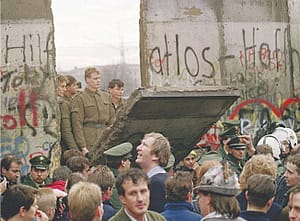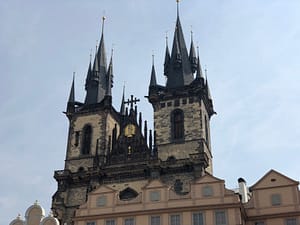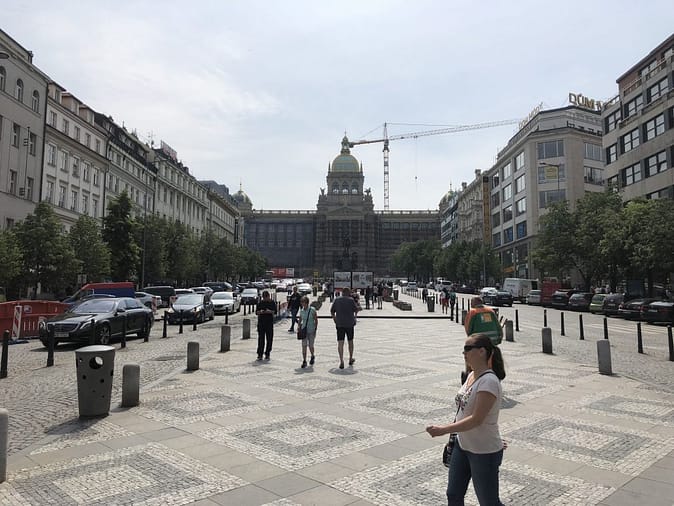Waltersreviews has been changed!
As you can see, the new name is:
Derron’s Travel Tips
I changed the name to reflect exactly what this site will be about in the future. Namely, a site where you can get information on travel destinations that Americans don’t usually go to.
By the way, the name of this site is now the same as my YouTube Channel – Derron’s Travel Tips.
So with that out of the way.
The topic of this article is:
The Touchy Subject of “Eastern v. Central Europe.”
One way to not make friends in the Czech Republic, Poland, and a few other countries, is to tell them they live in “Eastern Europe.”
They will be offended.
As I’m getting ready to go to Zagreb Croatia, and Budapest Hungary, this seems like a good time to revisit this issue.
What is Eastern Europe?
First, what Eastern Europe is not. We can all agree that countries such as France, England, Spain, and Italy are all Western Europe.
Second, there are geographic measurements that say where Western Europe stops, and Eastern Europe starts. However, the geography really doesn’t matter.
From a geography point of view, scientists use the Ural Mountain range to divide Eastern and Western Europe. If you use the Ural Mountains, Moscow, Russia is in the “west.”
Geography doesn’t matter; the label “Eastern Europe” is more of a political label than specific geography.
The Eastern Bloc
Many Americans, including me, grew up in the 80s, 90s, etc. hearing terms like,
The Cold War
The Iron Curtain
The USSR
Communism
The Warsaw Pact.
Each of these titles has a different meaning, but basically, they connotate all the countries against the western countries after World War II. The period of time was called the Cold War.
What I find interesting is that I was well into adulthood before I learned that Russia and the U.S. were friends and allies in WWII and defeated Hitler together.
In fact, most of the world credits Russia with turning the tide against Hitler in WW II.
Nevertheless, most of the countries that fell into the Eastern Bloc were:
Russia, East Germany, Ukraine, Belarus, Estonia, Latvia, and Lituania, Croatia, Hungary, Slovenia, Hungary, Czechoslavakia, Poland, Slovakia, Bulgaria, Moldova, and Albania.
The Fall of Communism
The fall of Communism was around 1989, 1990, and 1991.

Western democracy survived, and Communism fell.
This is why Central or Eastern Europe is such a touchy subject.
Countries such as Czech, Slovenia, Poland, don’t want to be called “Eastern Europe.”
I’m not sure, but I don’t think Croatia or Slovakia wants to be called Eastern Europe either.
These countries understandably don’t want to be associated with Communism. This is why most people in that area of the world say Eastern Europe is the country just to the east of where they are.
Good “Eastern Europe”
On the other hand, most of the world’s best-looking girls are from “Eastern Europe.”
Some girls in Central and Eastern Europe don’t mind being called “Eastern Europe” because of this.
I wonder what beautiful Croatian and Hungarian girls will say.
Also, some countries simply like being called Eastern Europe. If you’re in Russia, Ukraine, or Belarus, they will not care if you say you’re in Eastern Europe.
In fact, as I wrote about in What is Russia Really Like? Russians take great pride in being Russian.
Eastern European Indifference
Some countries don’t really care if you say they’re Eastern Europe, even if they identify with the West. Some of these countries are in NATO or the EU, or want to be:
For example, Estonia, Latvia, and Lituania. Even Ukraine is looking towards the west these days.
Central Europe
But Poland, Czech Republic, and Hungary don’t want to be called Eastern Europe. They want to be called “Central Europe.”


In addition to being associated with the fall of Communism, people in Poland, Czech, Hungary, the Baltics, and the Balkans were all under Communism.
Therefore, they don’t want to be reminded of the oppression they received from the old U.S.S.R.
In 1989, in the Velvet Revolution, Czechoslavakia changed from Communist control to a parliamentary republic. They have not looked back since.
The same also happened in Poland in 1989.
Summary:
Since literally every person I met in Moscow, Russia, and Kyiv, Ukraine were incredibly nice and helpful, I, for one, have no problem with Eastern Europe.
Nevertheless, there are many Polish and Czech people who don’t want anything to do with Eastern Europe.
So if you’re visiting Prague or Krakow, or anywhere else in Czech or Poland, make sure you call it Central Europe.
